QOTD: Bug Out, but in What?

You’ve had it. You see no point in going on doing what you’re doing anymore, no bright side to sticking it out and hoping for sunnier skies. You need a change, and the great woods and hills beckon, free of people, social media, politicians, and large, soulless companies that treat you like a less-than-human cog in an inefficient machine.
You’ve come into some money, let’s say, and have a book you’ve never gotten around to writing (or reading). A change of pace would do you good, assuming you can stand the solitary life and aren’t afraid of either the dark or getting your hands dirty.
However, before putting this plan into action, you’ll first need a vehicle.
Look inward. There’s a tract of land, a specific location, you’ve always wanted to settle down on — or bug out to when the shit hits the fan. It’s a strategic location where there’ll be timber, flowing water, fields, high ground, and opportunities for agriculture and hunting. With the right materials, maybe a little solar hardware, a generator, and a propane tank, you could turn it into a utopia.
For some, winter won’t pose much of a problem. For many more, it likely will. And you’ll have to make periodic trips into town for provisions, possibly mail, and, if things get too lonely, human contact.
You leave the city — yelling “good riddance” as a smile creeps across your face — in a vehicle stocked full of supplies, knowing you’ll be able to source easier-to-find materials at a local hardware store. That vehicle is the one that’ll get you around your new property, and into town, if needed. It’ll need to be capable and commodious. A tough steed you’ll have to depend on. A Jack of all trades.
Good thing the auto industry probably has what you’re looking for, isn’t it? Now’s the time to choose. Go.
[Image: Ford]

More by Steph Willems
Latest Car Reviews
Read moreLatest Product Reviews
Read moreRecent Comments
- Dartdude Having the queen of nothing as the head of Dodge is a recipe for disaster. She hasn't done anything with Chrysler for 4 years, May as well fold up Chrysler and Dodge.
- Pau65792686 I think there is a need for more sedans. Some people would rather drive a car over SUV’s or CUV’s. If Honda and Toyota can do it why not American brands. We need more affordable sedans.
- Tassos Obsolete relic is NOT a used car.It might have attracted some buyers in ITS DAY, 1985, 40 years ago, but NOT today, unless you are a damned fool.
- Stan Reither Jr. Part throttle efficiency was mentioned earlier in a postThis type of reciprocating engine opens the door to achieve(slightly) variable stroke which would provide variable mechanical compression ratio adjustments for high vacuum (light load) or boost(power) conditions IMO
- Joe65688619 Keep in mind some of these suppliers are not just supplying parts, but assembled components (easy example is transmissions). But there are far more, and the more they are electronically connected and integrated with rest of the platform the more complex to design, engineer, and manufacture. Most contract manufacturers don't make a lot of money in the design and engineering space because their customers to that. Commodity components can be sourced anywhere, but there are only a handful of contract manufacturers (usually diversified companies that build all kinds of stuff for other brands) can engineer and build the more complex components, especially with electronics. Every single new car I've purchased in the last few years has had some sort of electronic component issue: Infinti (battery drain caused by software bug and poorly grounded wires), Acura (radio hiss, pops, burps, dash and infotainment screens occasionally throw errors and the ignition must be killed to reboot them, voice nav, whether using the car's system or CarPlay can't seem to make up its mind as to which speakers to use and how loud, even using the same app on the same trip - I almost jumped in my seat once), GMC drivetrain EMF causing a whine in the speakers that even when "off" that phased with engine RPM), Nissan (didn't have issues until 120K miles, but occassionally blew fuses for interior components - likely not a manufacturing defect other than a short developed somewhere, but on a high-mileage car that was mechanically sound was too expensive to fix (a lot of trial and error and tracing connections = labor costs). What I suspect will happen is that only the largest commodity suppliers that can really leverage their supply chain will remain, and for the more complex components (think bumper assemblies or the electronics for them supporting all kinds of sensors) will likley consolidate to a handful of manufacturers who may eventually specialize in what they produce. This is part of the reason why seemingly minor crashes cost so much - an auto brand does nst have the parts on hand to replace an integrated sensor , nor the expertice as they never built them, but bought them). And their suppliers, in attempt to cut costs, build them in way that is cheap to manufacture (not necessarily poorly bulit) but difficult to replace without swapping entire assemblies or units).I've love to see an article on repair costs and how those are impacting insurance rates. You almost need gap insurance now because of how quickly cars depreciate yet remain expensive to fix (orders more to originally build, in some cases). No way I would buy a CyberTruck - don't want one, but if I did, this would stop me. And it's not just EVs.


















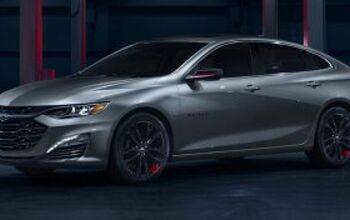
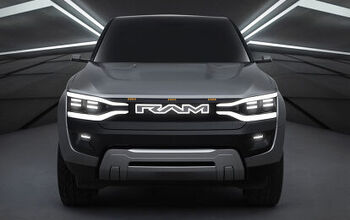
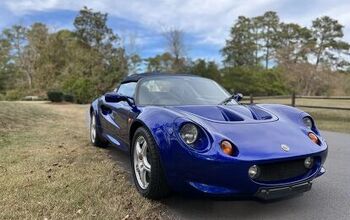
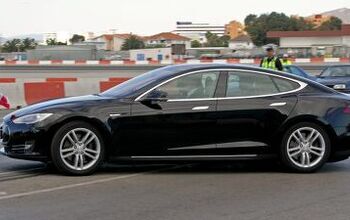








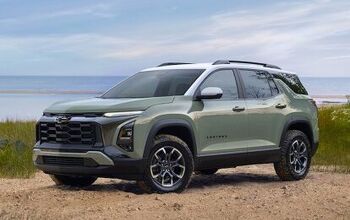
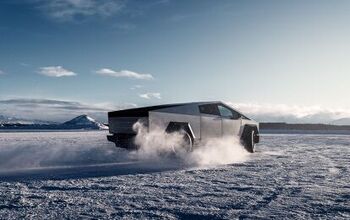


Comments
Join the conversation
A boat. Because I would be settling on an island if the zombie apocalypse was upon us. I already have a Land Rover Disco I to tow it with and leave on the mainland for supply runs until things get too bad.
Since this seems like a voluntary decision, not something foisted upon me by the apocalypse, I'd probably just upgrade from my current RWD Durango SXT to an AWD Durango GT and call it good. In more dire circumstances, I'd take a Power Wagon with front and rear benches in order to ensure capability both on- and off-road, with room enough for my whole family. In the most dire circumstances, in which my family is wiped out by whatever is throwing the world into chaos, I'd probably go for something like a Jeep Wrangler Overland/Rubicon or some kind of Dual Sport motorcycle.